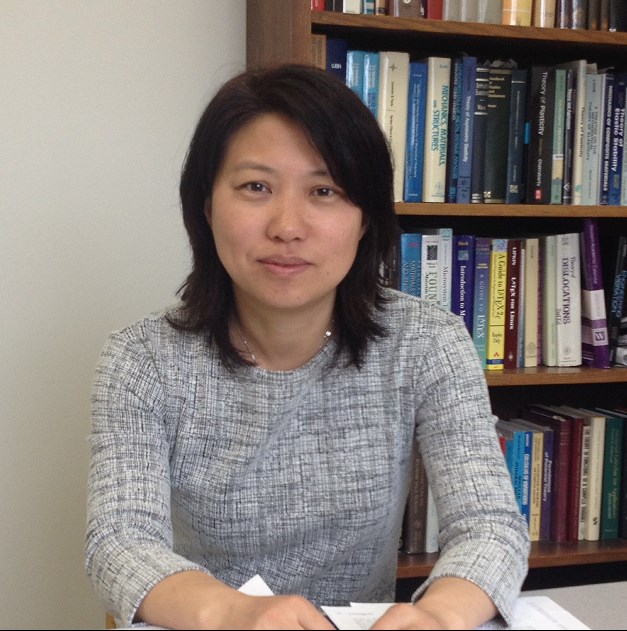Invited Speaker

Liying Jiang
Professor, Department of Mechanical and Materials Engineering,Western University, Canada
Speech Title: Fatigue Analysis of Dielectric Elastomers under Electromechanical Loads
Abstract: Dielectrics elastomers (DEs), one category of soft electroactive polymers, are characterized with softness, high energy density, rapid response, lightweight, and particularly large deformation capability under electrical stimuli. With such distinguished properties, DEs have extensive applications as soft robots, artificial muscles, stretchable electronics, actuators, oscillators and energy harvesters. When DEs in these applications are designed to undergo cyclic loading for a long period of time, a critical issue is to ensure their mechanical durability by predicting the fatigue life. However, the evaluation of the fatigue life of soft dielectrics is very challenging due to the modelling complexity when electromechanical coupling, finite deformation and material viscoelasticity are involved. Therefore, this work aims to develop a novel fatigue predictor to assess the fatigue life of soft DEs under various loading conditions to reveal the fatigue mechanisms. Stemming from the crack nucleation approach, a configurational stress tensor for DEs with the consideration of both electromechanical coupling and material viscoelasticity is formulated as the basis to define a fatigue predictor. As all energetic properties of defect evolution in the material are included in the configurational stress tensor, the developed fatigue predictor is capable of capturing all the factors that govern the fatigue damage of DEs which have been demonstrated by the simulation results. It is concluded that the electrical part and the viscous part of the configurational stress do not lead to fatigue damage of DEs, while the strain-softening behavior of elastomers exerts a significant effect on the fatigue life of DEs. This modeling work is anticipated to help better understand the fatigue mechanisms of DEs and can be extended as a general platform for the fatigue analysis of other materials subjected to coupled field. As the predictor is capable of adopting most of the strain energy density functions for rubber-like materials and the thermodynamics evolution laws for viscoelastic solids, it is feasible to implement this modeling framework in finite element analysis for DEs with more complicated deformation.
Keywords: Dielectric elastomers, fatigue, configurational stress tensor, electromechanical coupling.
Acknowledgements: This work was supported by the Natural Sciences and Engineering Research Council of Canada (NSERC).
Biography: Dr. Liying Jiang is currently a full professor in the Mechanical and Materials Engineering Department at Western University, Canada. Prof. Jiang’s research focuses on theoretical modeling and numerical simulation to develop mechanics and physics models for challenging problems related to materials behavior, ranging from traditional composites, to smart materials, and to nanostructured materials. Research topics include multiphysics modeling on smart materials and soft matters (dielectric elastomers, hydrogels and piezoelectric materials), computational mechanics modeling on composites, nanomechanics, and failure analysis of advanced materials. Prof. Jiang was the recipient of NSERC University Faculty Award and Petro-Canada Young Innovator Award. Prof. Jiang serves on the Canadian National Committee for the International Union of Theoretical and Applied Mechanics (CNC-IUTAM) and is the Co-Vice Chair of the Tech Committee of Solid Mechanics in Canadian Society for Mechanical Engineering (CSME). To date, Prof. Jiang has published over 100 journal and conference papers.

